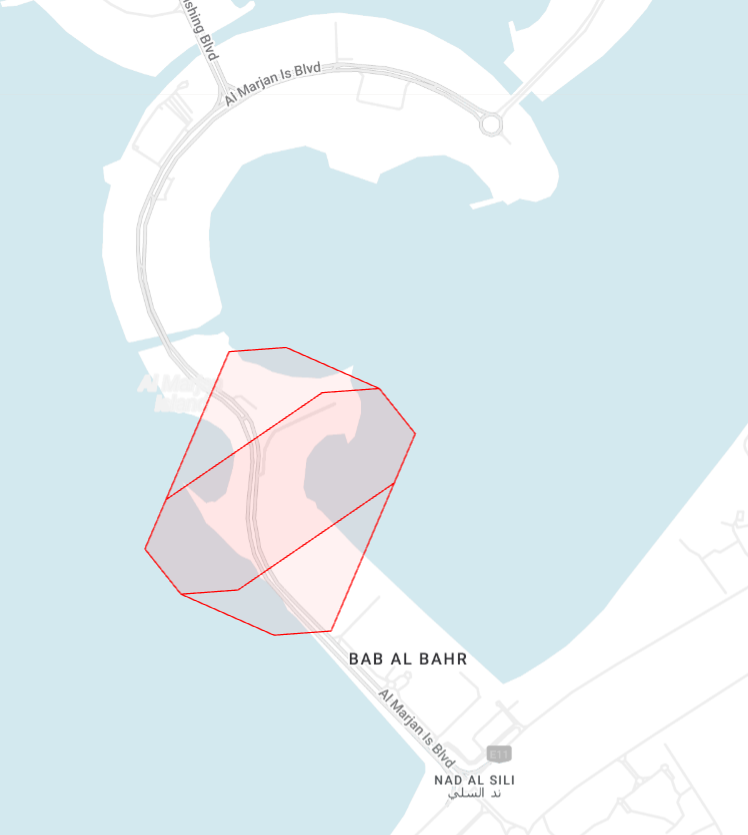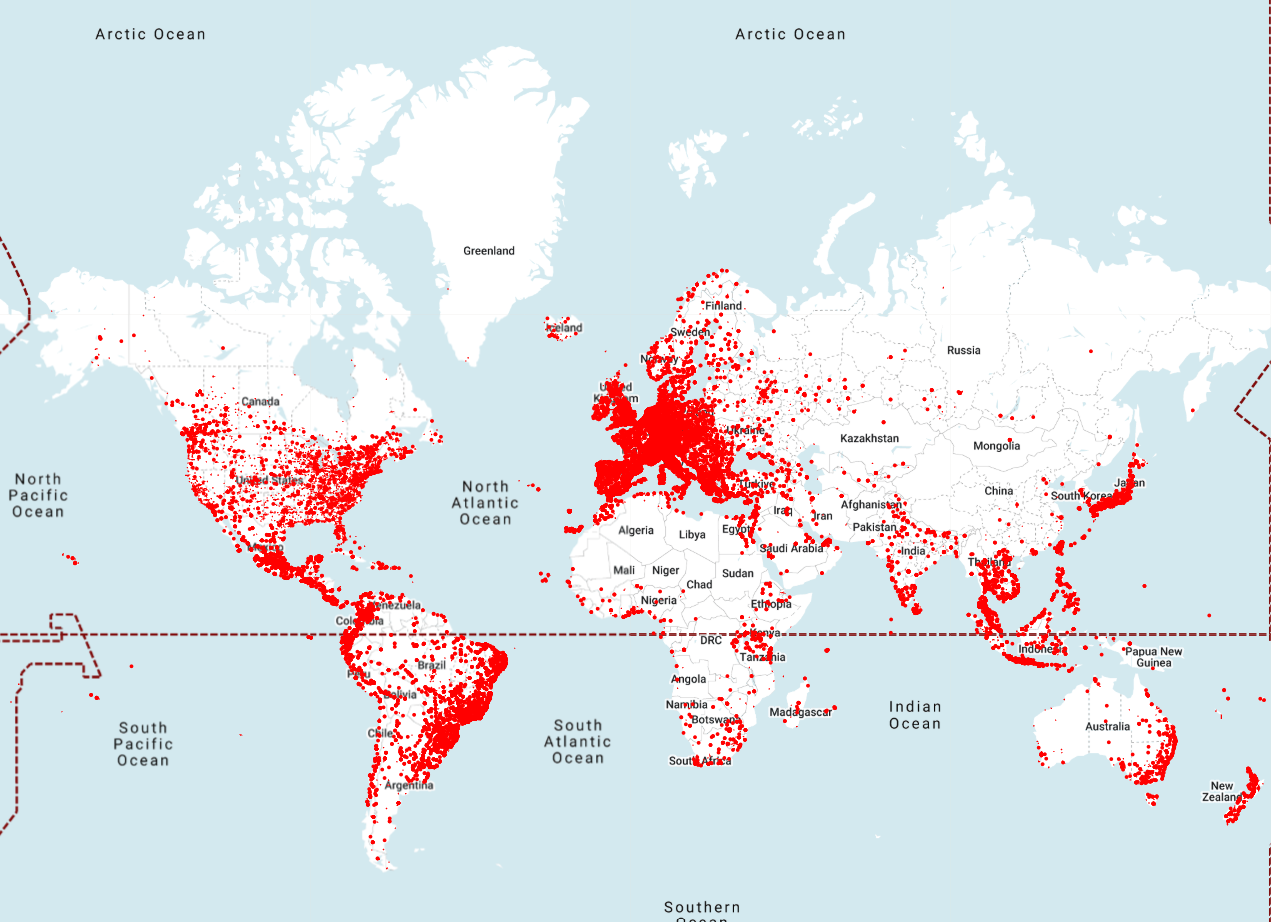An executive connects to the Moxy Seattle Downtown hotel Wi-Fi, their IP address: 50.235.182.176. From there, every service they touch gets it wrong.
A food delivery app treats them like a Seattle local, pushing lunch specials for next Sunday. A rideshare app defaults to local-mode suggestions, skipping airport-transfer options and first-time wayfinding prompts. Their company's VPN triggers security alerts for "unusual location," despite this being their third business trip this month. Streaming quality drops as the adaptive bitrate responds to the congestion and latency of shared hotel Wi-Fi.
That single IP, shared by hundreds of guests, only says “Seattle.” What matters is the context: a hotel guest on a business trip, likely needing dinner tonight, a ride tomorrow morning, and stable bandwidth for a video call.
Today we're unveiling Hotel, our latest contextual IP tag, now in private beta. It identifies when traffic flows through hotel and hospitality networks, transforming how you understand and respond to these connections.
Want to explore it yourself? Check out live examples on our public tag explorer.
The Hidden World of Hotel Networks
Every day, millions of business travelers, tourists, and conference attendees connect through hotel Wi-Fi. These aren't just "IPs in cities," they're shared gateway environments where many devices sit behind the same public IP:
- Captive portals that intercept initial traffic
- Shared gateways pooling dozens or hundreds of guests behind a single IP
- Venue-managed networks with enterprise gear and centralized providers
- Transient populations cycling through every 24-72 hours
Yet most IP intelligence treats these exactly like any other connection. That blind spot impacts everything from fraud detection to ad targeting to product experiences.
What This Tag Does
Hotel identifies IP ranges associated with hotel premises, primarily guest Wi-Fi and venue networks. It's both location-aware and context-aware, telling you not just where an IP resolves, but how that connection is being made.
Think of it as the difference between knowing someone is in the United Arab Emirates versus knowing they're on the DoubleTree by Hilton Resort & Spa Marjan Island, behind a captive portal, sharing bandwidth with 700+ other devices.

How We Built It
Like our Airport and Airplane tags, Hotel emerges only when multiple independent signals align:
- SSID/BSSID patterns associated with hospitality brands and venue networks
- Geospatial corroboration with hotel footprints and venue boundaries
- Provider/ASN signals typical of enterprise hospitality deployments
- Device observations consistent with guest Wi-Fi behavior patterns
No single signal triggers the tag. When your device connects to "Hilton_Honors" in Dubai, we don't just trust the SSID, we verify the location, check the infrastructure fingerprints, analyze the provider, and confirm the activity patterns all make sense. Precision beats coverage.
Coverage Snapshot (Private Beta)*
*September 2025

What You Can Do With It
Advertising & Attribution
Transform targeting and measurement with hotel context:
- Target travelers in the moment with relevant offers (late checkout, local dining, rideshare)
- Use Hotel as an inclusion/exclusion signal or bid modifier for on-property and near-property offers.
- Adjust measurement where captive-portal latency and caches can affect timing.
Security & Fraud Prevention
Stop treating hotel connections like regular traffic. When you see the Hotel tag:
- Treat Hotel as a context flag; expect shared public-IP gateways, captive portals, and occasional DNS interception
- Adjust risk scoring for shared-gateway environments where identity signals get noisy
- Relax "impossible travel" alerts when venue context explains IP geo changes
- Expect captive portal artifacts like DNS interception and redirect loops
Product & User Experience
Design smarter experiences for hotel connections:
- Build portal-aware flows with gentle retries and "continue after sign-in" paths
- Offer bandwidth-conscious options like "download for offline" or quality settings
- Relax aggressive session timeouts triggered by gateway-level IP reuse or mid-session IP changes
- Preload content intelligently, knowing venue networks often throttle streaming
Network & Infrastructure Intelligence
See hospitality networks for what they really are:
- Distinguish venue/enterprise Wi-Fi from residential or carrier traffic
- Track brand/provider shifts to inform peering, cache placement, and QoS choices
Curious Facts About Hotel IPs
- One IP ≠ one person. Hotel gateways often concentrate many devices behind a single exit.
- Brand families exist. Some properties advertise sub-brand SSIDs while sharing a parent provider/ASN footprint.
- Captive portals leave signatures. Nearly every hotel IP shows webserver co-tags. Those splash pages every device hits before getting online. It's like a venue fingerprint in the data.
- Overlap with nearby venues happens. Lounges, malls, or mixed-use buildings can resemble hotels by SSID alone — context disambiguates.
Why This Matters Now
Global hotel occupancy is approaching pre-2020 peaks. Business travel is resurging. Digital nomadism has normalized working from hospitality venues. According to recent data, global hotel demand reached a staggering 4.8 billion room nights through November 2024. Global hotel performance remains resilient. That's billions of sessions flowing through venue networks that deserve specialized handling.
This isn't edge-case detection. It's recognizing a massive, distinct category of internet traffic that's been hiding in plain sight.
Hotel joins Airport and Airplane as part of our broader mission: making IP intelligence contextual, not just geographical. Because knowing the infrastructure and context behind an IP address matters as much as knowing its location.
Join the Private Beta
Hotel is available now in private beta, with coverage expanding daily as our detection improves. It's the latest addition to IPinfo's contextual intelligence system, joining our other tags, including Airport, Airplane, Satellite, and more at ipinfo.io/tags.
Ready to add Hotel IP intelligence to your stack? Contact us to join the early access program. We'd love to learn about your use case and hear your feedback as we continue to improve the tag.
The internet isn't flat. Your IP intelligence shouldn't be either.
About the author

As the product marketing manager, Fernanda helps customers better understand how IPinfo products can serve their needs.
